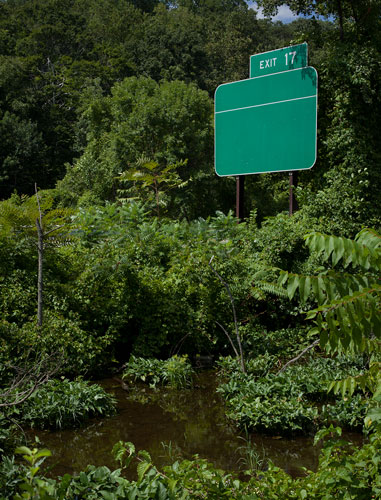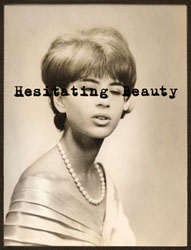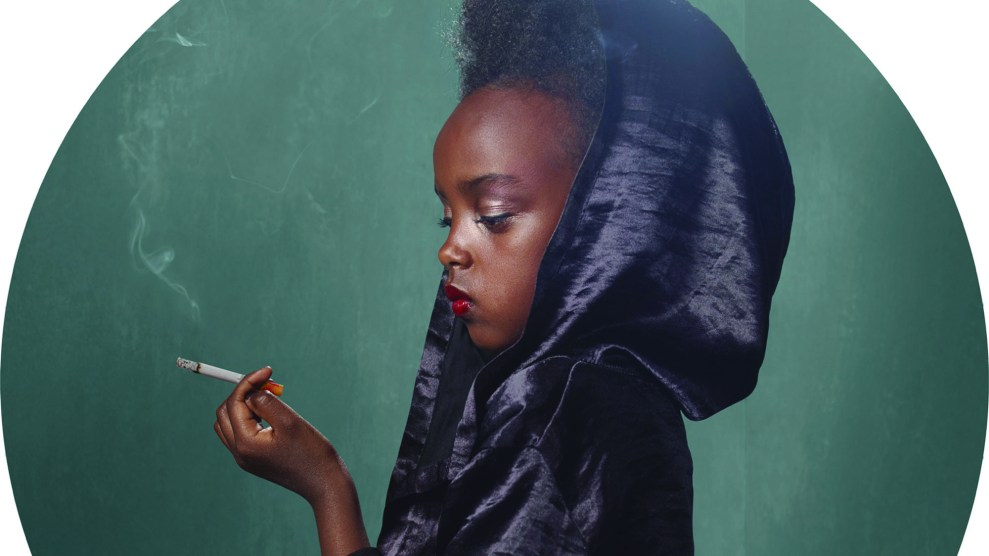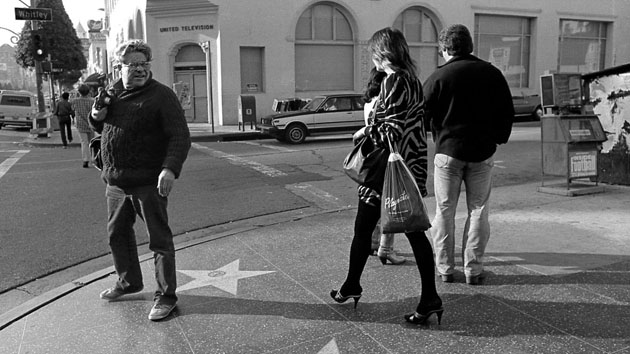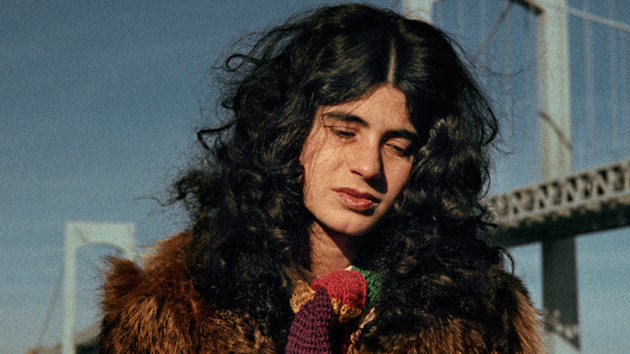
Photo of Joshua Lutz's mother at Whitestone Bridge.Photos by Joshua Lutz/<a href="http://www.schiltpublishing.com/">Schilt Publishing</a>
Most photographers use their books as a means to an end, a delivery vehicle for their images. Photographer Joshua Lutz, by contrast, uses his latest, “Hesitating Beauty,” to tell a story. Lutz identifies as an artist who works with photographs—a fitting description given the gorgeous large-format landscapes he’s shot in the past and the way he turned this one into an artistic medium. In “Hesitating Beauty,” he employs vintage family photos, contemporary images of his mother, and text that reads like fragments of a stranger’s letters—not to mention the book’s physical format—to plunge the reader into a world in which reality appears entirely subjective. It’s not some philosophical jerkoff, but a rather painful exploration of his mother’s descent into mental illness. Here she is in one of the few vintage photos found in the book, younger than today.

Lutz’s first monograph, “Meadowlands,” was a sprawling object befitting the subject matter. The book itself was giant and unwieldy; its pages allowed his large-format images to stretch out. You got a little lost in his landscapes, finding beauty in the most unlikely places.
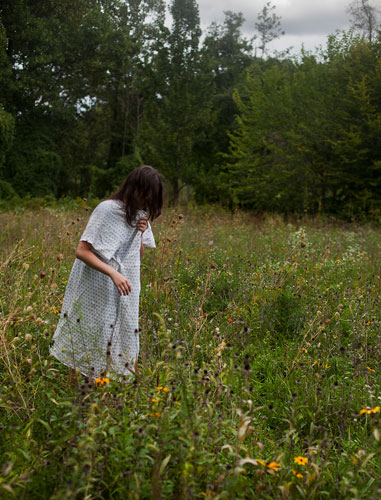
But “Hesitating Beauty” is appropriately stark. It’s a smallish book, about the size of a diary. Where “Meadowlands” stood wide open, arms outstretched, Lutz’s new book is tight and withdrawn—arms wrapped around itself. The format fits this very personal photo narrative of Lutz caring for his mother as she slipped from paranoia and depression into psychosis and delusion. It’s a sad book. Strong and memorable, but sad.

“I tried to imagine a time when the past, present and future collided,” Lutz writes, “a place where the weight of memory is heavier than reality.” Unlike other über-personal photo projects about the demise of a loved one (and there are a lot of ’em), “Hesitating Beauty” imparts the sense of setting out on a torrid sea in a small boat—or drifting in and out of consciousness and reality. There are moments of lucidity: The images and texts from Lutz’s father, the detail shots from within the hospital, and even the shots of Lutz’s mother. You know where you are and what you’re looking at.
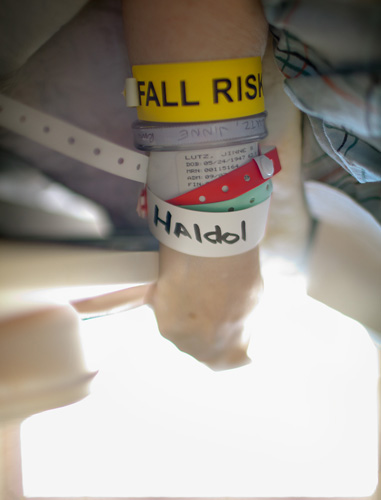
But then Lutz will sweep you into a dreamscape, with images that might not be quite what they seem and text that only sometimes makes sense. Even the old family photos tinker with the concept of reality. Everyone looks happy. Dig deeper, read the text, and you quickly learn otherwise.
Even the cover image, a woman wearing pearls caught mid-blink during a portrait session, tips you off that everything within hovers on the fringe of normality. How do you use photography to describe mental illness? How can images tell the story of seeing someone you love slip gradually into a world divorced from reality?

“Hesitating Beauty” is not the usual coffee-table book that you pick up and leaf through casually. Yes, there are 50 or so wonderful images to be perused. But to get the full impact, you have to pick it up, spend some time with it, put it down, and then repeat—each time uncertain whether you’ll land at a moment of clarity or be lost underwater; unsure which way is up, or what is real.

“Hesitating Beauty” is far more than a means to an end. It’s subtle yet powerful. And it’s one of many signs that Lutz is not simply a great photographer, but a very smart one as well.
